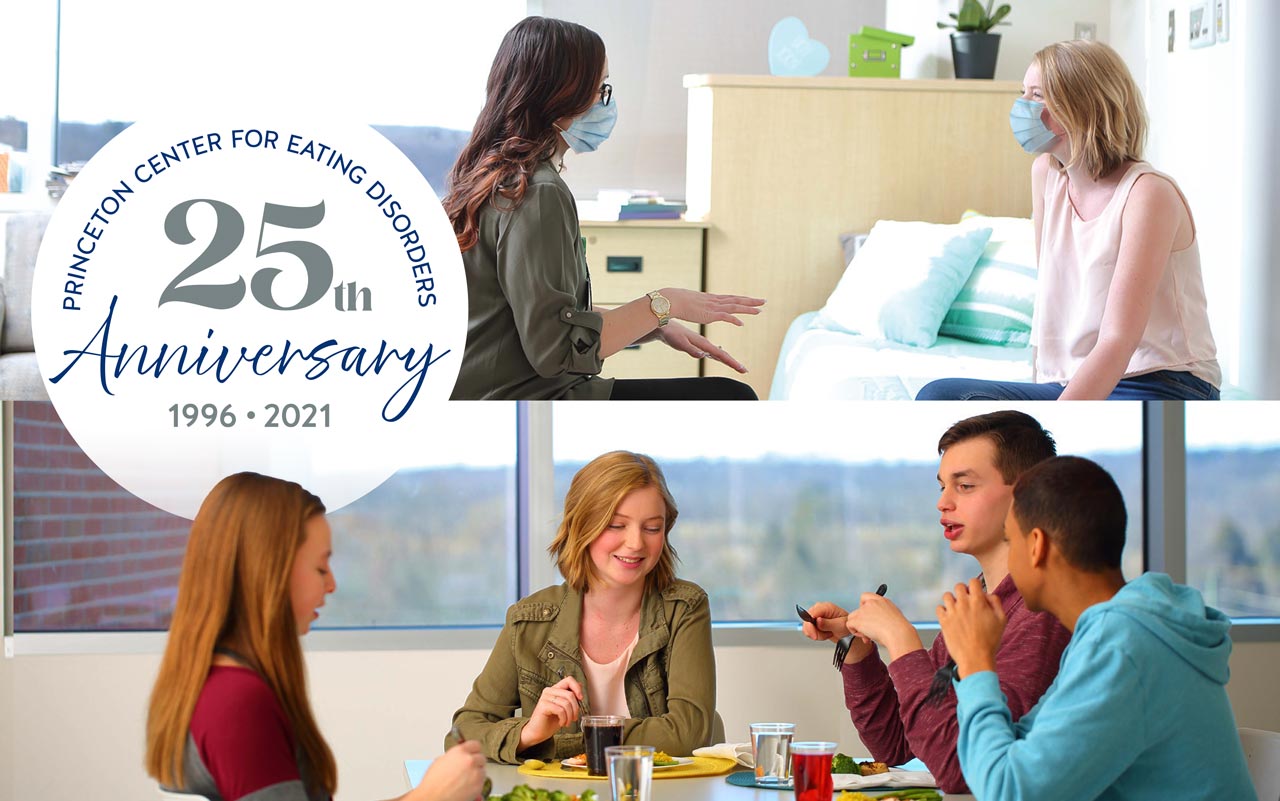Today, the Penn Medicine Princeton Center for Eating Disorders has 22 inpatient beds, and is ideally equipped to treat patients with medical complications of eating disorders, as well as related mental health conditions such as depression, obsessive-compulsive disorder, and other mood disorders.
“The center is nationally recognized,” says Robbi Alexander, PhD, APN, Director of the Princeton Center for Eating Disorders. “We serve individuals, age eight and older, and have nine beds designated for children and 13 for adults. Patients come to us from around the country and abroad—from 40 different states in 2020—since we are one of only a few eating disorders programs with a psychiatric unit in a medical facility able to provide treatment for co-existing medical conditions.”
Common medical conditions occurring with eating disorders may include diabetes, hypertension, pregnancy, or kidney disease. Eating disorders take a toll on the body, and Princeton Center for Eating Disorders addresses both the mind and body.
Individualized Treatment
The center’s inpatient program, with access to onsite medical staff around the clock, is designed to meet the individualized needs of each patient, and includes individual and group therapy, as well as family therapy sessions to help integrate changes within the individual’s household. Nutrition counseling, stress reduction techniques, and expressive groups such as art and music are also part of the program. For school-aged children in the program, individual tutoring with certified teachers is provided.
While some eating disorders programs are limited to girls and women, Princeton Center for Eating Disorders cares for individuals of all genders. “The public doesn’t often think of eating disorders and males," says Alexander, “but eating disorders also affect boys, men, and transgender people.”
“Our goal is to treat the individual’s emotional and physical needs in a caring, supportive setting that encourages success,” says Alexander.
For more information about the Princeton Center for Eating Disorders, call 609.853.7575, or visit princetonhcs.org/eatingdisorders.

